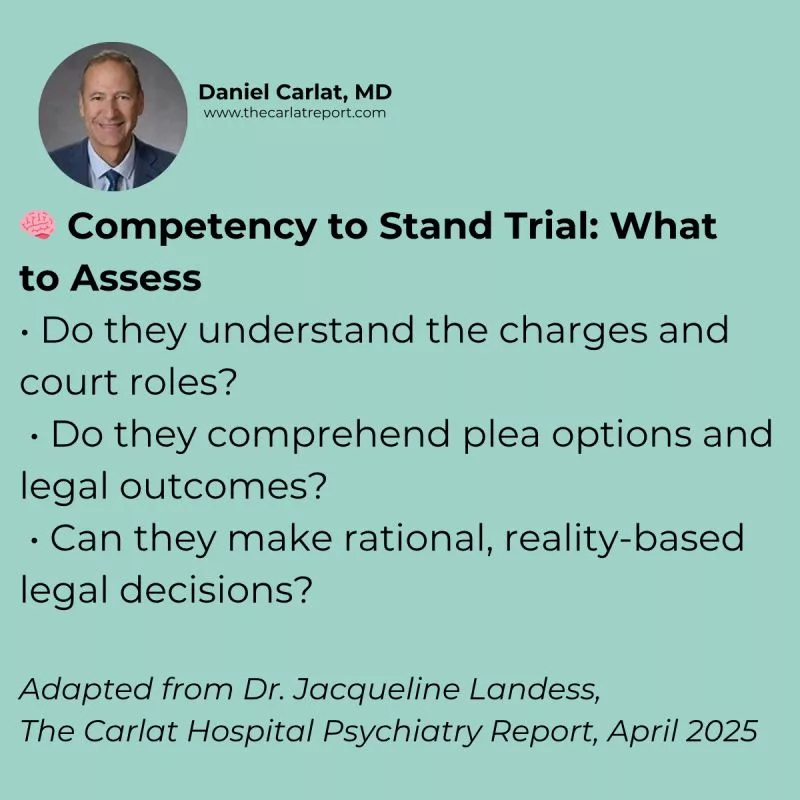We’re trained to treat mental illness—not to navigate the courtroom.
But more and more, those worlds are colliding.
Whether you’re inpatient, outpatient, or consult-liaison, you’ve probably seen it:
A patient arrested for a minor crime, sitting in jail for months—not because of guilt or innocence, but because they’re too sick to stand trial.
This isn’t fringe psychiatry. It’s forensic overload.
Each year, around 94,000 defendants undergo evaluations for competency to stand trial. Demand is outpacing resources. And the delays? They’re becoming a second sentence.
In our latest interview for The Carlat Hospital Psychiatry Report, forensic psychiatrist and JD, Dr. Jacqueline Landess demystifies the core clinical role psychiatrists play in this process.
What competency is (and isn’t).
How delusions alter legal rationality.
Why “plea bargain” comprehension is often the linchpin.And how trauma, culture, and capacity converge in court.
One of the sharpest insights?
“We’re not just assessing whether someone understands the charges. We’re assessing whether they can meaningfully participate in their own defense.”
What role should general psychiatrists play in this “competency crisis”?
And what would it take for our systems to balance care with constitutionality??
If you’ve ever had to assess—or advocate—for a patient facing charges, how did you navigate the legal lines?
From The Carlat Hospital Psychiatry Report, April 2025.
Join the conversation on LinkedIn with Dr. Carlat


_-The-Breakthrough-Antipsychotic-That-Could-Change-Everything.webp?t=1729528747)



